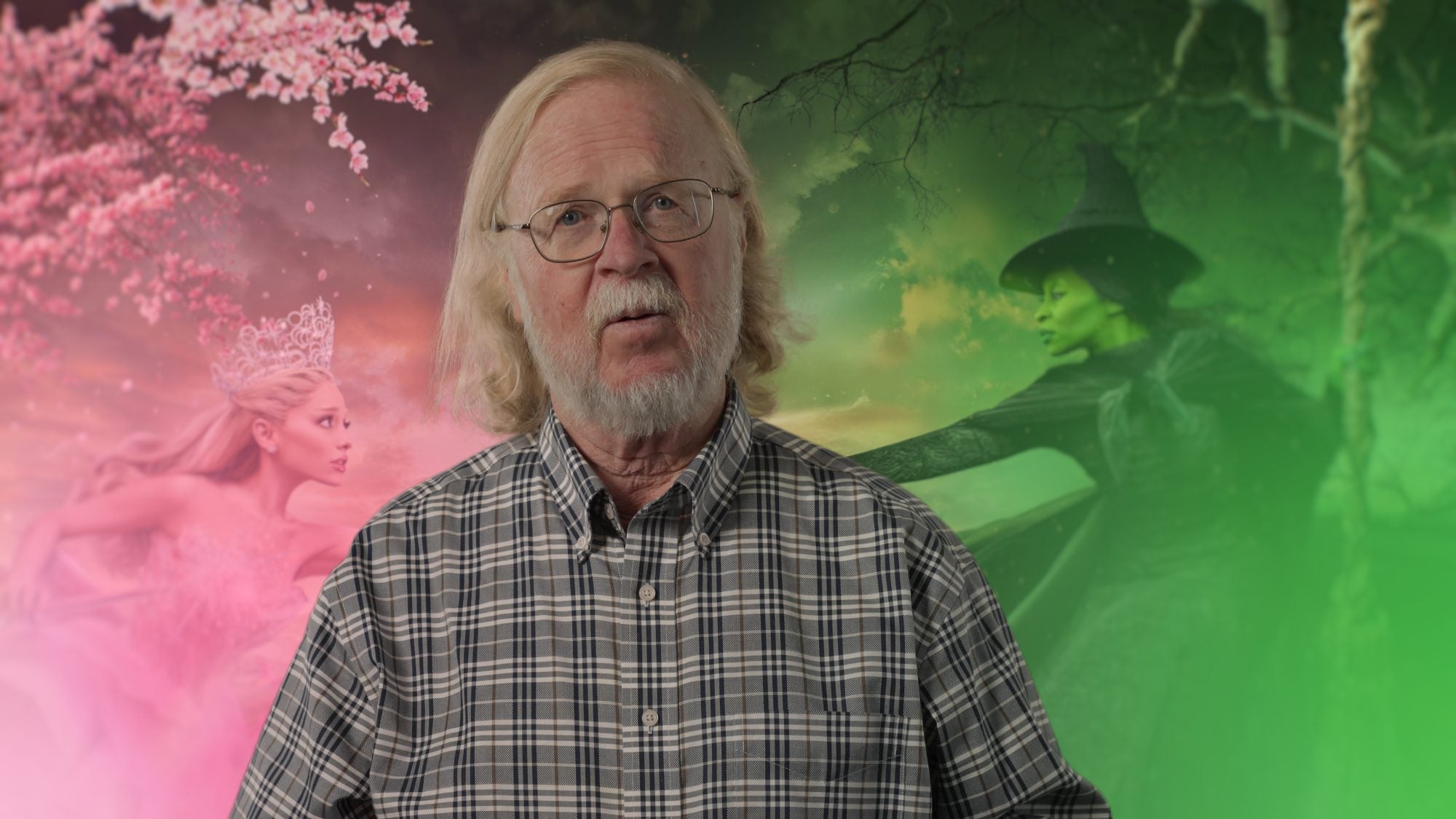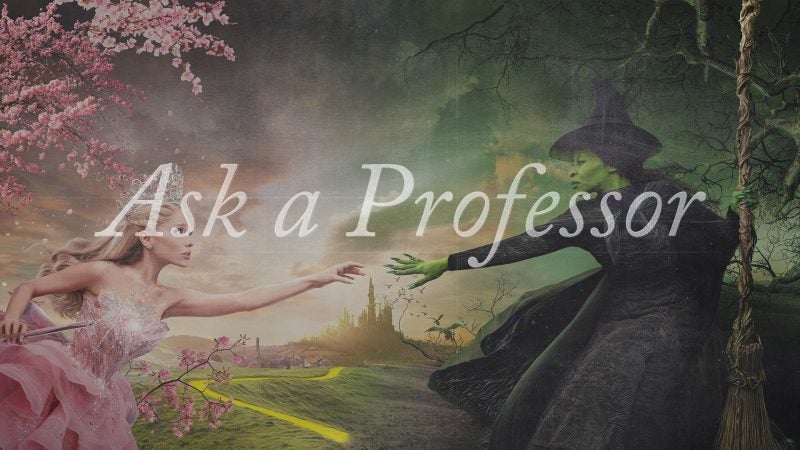On Nov. 21, Wicked: For Good premieres in theaters and continues the story of Elphaba as she must rally from her exile to defeat the Wizard.
Once portrayed as the evil Wicked Witch of the West, Elphaba is cast in a new light as she leads the people to liberate Oz in the retelling of the 1939 film The Wizard of Oz.
For Bob Bies, professor in the McDonough School of Business, the hit musical-turned-movie offers the perfect vehicle to showcase lessons in leadership.
Bies is an expert on organizational behavior and management who also teaches a popular first-year seminar, Heroes and Villains: Character and Leadership in a Global Context. In the class, students explore what makes a hero and a villain and how those lessons can be applied to their own careers. An avid lover of films, Bies has students watch movies like The Dark Knight and The Devil Wears Prada to illustrate lessons in leadership.
“I think in the reimagining of The Wizard of Oz, the Wicked Witch is actually the good witch. Elphaba is the real hero,” he said. “What do heroes and villains have to do with business? Well, our concepts of good and bad leaders are grounded in our concepts of heroes and villains.”
Explore Bies’ lessons in leadership through the characters in Wicked and what separates the heroes from the villains and makes ordinary people into leaders.
Ask a Professor: Heroes, Villains and Leadership in ‘Wicked’
How do you define hero and villain?
Heroes are people who inspire and uplift. Villains are those who demean and diminish. Heroes step up to do good, and villains step up to do bad.
Do you believe people are born as heroes and villains?
We had this conversation [in class]. The reality is that it’s more nurtured. Whatever happened in your life, usually there’s some traumatic thing or the group that you’re a part of that shaped who you are. All of us were shaped by our families and the environment we lived in. It gets developed. You turn into somebody who’s evil. You’re not born evil. All children are born good, but sometimes life happens, and it’s not always good what happens to them.
Elphaba is originally the evil Wicked Witch of the West. What makes audiences root for her in Wicked?
Because people see her intentions. They see her actions and how she’s always trying to do good, particularly by those who are not held in high regard, like the monkeys. She’s always looking for the good rather than diminishing.

